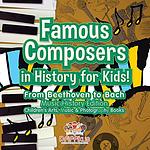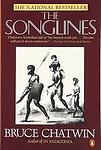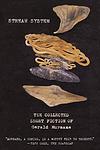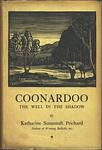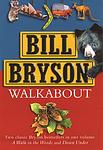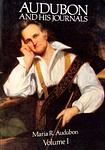The Greatest "Australia" Books of All Time
Click to learn how this list is calculated.
This list represents a comprehensive and trusted collection of the greatest books. Developed through a specialized algorithm, it brings together 300 'best of' book lists to form a definitive guide to the world's most acclaimed books. For those interested in how these books are chosen, additional details can be found on the rankings page.
Genres
The "Australia" category for books would encompass literature that is set in or explores the culture, history, and geography of Australia. This could include works of fiction, non-fiction, memoirs, and travelogues that showcase the unique characteristics of the country, such as its diverse landscapes, indigenous cultures, and colonial history. The category would appeal to readers interested in learning more about Australia and its people, as well as those seeking engaging stories set in this fascinating part of the world.
Countries
Date Range
Reading Statistics
Click the button below to see how many of these books you've read!
Download
If you're interested in downloading this list as a CSV file for use in a spreadsheet application, you can easily do so by clicking the button below. Please note that to ensure a manageable file size and faster download, the CSV will include details for only the first 500 books.
Download-
26. The Commandant by Jessica Anderson
"The Commandant" is a historical novel that explores the life of Frances Forbes, the wife of Commandant Patrick Logan, who was a penal colony superintendent in Australia during the 19th century. The story, narrated by Frances, provides a detailed account of their life in the colony, including the harsh conditions, the social hierarchy, and the relationships between the convicts, soldiers, and officers. The narrative also delves into Frances' personal life, her loneliness, her relationship with her husband, and her struggle to maintain her sanity amidst the harsh and isolated environment.
-
27. The Children's Bach by Helen Garner
"The Children's Bach" is a captivating novel that explores the complexities of family dynamics and the pursuit of happiness. Set in Melbourne, the story follows a group of interconnected characters as they navigate their relationships, dreams, and disappointments. Through beautiful prose and keen observations, the author delves into themes of love, loss, and the search for meaning in everyday life, creating a poignant and thought-provoking narrative.
-
28. Melbourne by David Cecil
This book provides an in-depth look at the life of William Lamb, 2nd Viscount Melbourne, who served as Prime Minister in early 19th century Britain. It explores his personal life, including his scandalous marriage and the tragic death of his only legitimate child, as well as his political career. The book also delves into his relationship with Queen Victoria, whom he served as a trusted advisor and mentor during the early years of her reign.
-
29. Death of a Lake by Arthur William Upfield
In "Death of a Lake", a young woman goes missing in the Australian Outback, causing a detective to suspect foul play when a local lake begins to dry up and reveal disturbing secrets. The detective has to navigate treacherous environmental conditions, local superstitions, and a cast of eccentric characters to solve the mystery. As the water levels continue to drop, the tension rises, culminating in a dramatic climax that reveals the truth about the missing woman and the secrets hidden beneath the lake's surface.
-
30. The Bone is Pointed: An Inspector Bonaparte Mystery #6 by Arthur William Upfield
This mystery novel centers around Inspector Bonaparte, who investigates the disappearance of stockman Jack Anderson from a cattle station in the Australian Outback. As he delves into the case, Bonaparte faces a unique challenge: he's been cursed by an Aboriginal wizard. As his health declines, he must solve the mystery before the curse takes its toll. The narrative weaves elements of detective fiction with insights into Aboriginal culture and the harsh realities of life in the Australian Outback.
-
31. The Songlines by Bruce Chatwin
The book is a semi-fictional account of the author's journey through the Australian Outback, where he explores the culture of the Aboriginal people, particularly their concept of 'Songlines' - invisible pathways that crisscross Australia, ancient tracks connecting communities and following the journeys of ancestral spirits. As he travels, he delves into the nomadic way of life, the idea of walking as a spiritual practice, and the deep connection between the Aboriginal people and the land. The narrative is interspersed with philosophical discussions on topics like nomadism, anthropology, history, travel, and the nature of human restlessness.
-
32. The Last Inch by James Aldridge
The novel revolves around the gripping tale of a young boy's unwavering determination and resilience. Set against the backdrop of World War II, the protagonist, a teenage boy, embarks on a perilous journey across war-torn Europe in a desperate attempt to reunite with his family. Facing numerous challenges and navigating through the dangers of a continent engulfed in conflict, his journey is a testament to the strength of the human spirit and the power of hope. Through his eyes, readers experience the horrors of war, the complexity of human emotions, and the indomitable will to survive against all odds.
-
33. Illywhacker by Peter Carey
The novel is a sprawling tale of deception, magic, and family history, narrated by a 139-year-old Australian con artist. He recounts his life's adventures, from snake handling to aircraft manufacturing, while weaving in the stories of his descendants. The narrative is a blend of historical fiction and tall tales, exploring themes of national identity, truth, and the art of storytelling itself. Through the protagonist's unreliable narration, the book challenges the reader to discern fact from fiction, all while painting a vivid picture of Australian society and its transformation over the 20th century.
-
34. One Hundred Poems by Kenneth Slessor
"One Hundred Poems" is a collection that brings together a century's worth of evocative and diverse poetry, showcasing the author's mastery of language and form. The poems traverse a vast landscape of themes, from the deeply personal to the universal, reflecting on the nature of time, memory, and mortality. The poet's vivid imagery and innovative use of rhythm and sound create a rich tapestry of verse that resonates with readers, inviting them to explore the complexities of human experience and the beauty of the world around them.
-
35. Inland by Gerald Murnane
Inland is a complex and introspective novel that explores the inner workings of the human mind and the concept of reality. The story is narrated by a man who is reflecting on his life, his relationships, and his experiences, using the vast landscapes of his native Australia as a metaphor for his inner world. The narrative is non-linear and often fragmented, reflecting the man's scattered thoughts and memories. The novel is a deep exploration of the human psyche, the nature of memory, and the power of the imagination.
-
36. Riders In The Chariot by Patrick White
This novel is a rich tapestry of themes and characters, interweaving the lives of four diverse individuals in post-World War II Australia. Each character, an eccentric Holocaust survivor, a reclusive heiress, a visionary Aboriginal artist, and a passionate washerwoman, is marked by intense spiritual experiences and a sense of being an outsider. Their paths converge in a narrative that explores the depths of human suffering, the potential for redemption, and the complex interplay between the sacred and the profane. Through their interconnected stories, the book delves into the moral and existential dilemmas of the human condition, offering a profound meditation on faith, meaning, and the possibility of transcendence amidst the harsh realities of everyday life.
-
37. Coonardoo by Katherine Susannah Prichard
The novel explores the complex and tragic relationship between the white owner of a cattle station in the Australian Outback and Coonardoo, an Aboriginal woman who grows up on the station. Despite their deep affection for each other, societal norms and racial prejudices of the early 20th century create an insurmountable barrier between them. The story delves into themes of love, race, and the harsh realities of life in the Australian wilderness, while also providing a poignant critique of the treatment of Aboriginal people and the destruction of their culture by white settlers.
-
38. Stradbroke Dreamtime by Oodgeroo Noonuccal
"Stradbroke Dreamtime" is a collection of autobiographical stories and traditional Aboriginal tales that weave together the personal experiences of an Indigenous Australian woman with the cultural heritage of her people. The book offers a window into the author's childhood on Stradbroke Island, sharing memories of family life, the natural world, and the impact of colonialism. Alongside these reflections, the work preserves a number of Dreamtime stories, which are central to Aboriginal spirituality and identity, passing on the wisdom and traditions of her ancestors through narratives that celebrate the connection between the land and its inhabitants.
-
39. The Harp In The South by Ruth Park
"The Harp In The South" is a compelling novel that delves into the lives of the Darcy family, living in the slums of Sydney in the 1940s. Through the eyes of the young protagonist, Roie, readers witness the struggles, dreams, and resilience of a family trying to make ends meet amidst poverty, violence, and societal prejudices. With vivid descriptions and memorable characters, the book explores themes of love, sacrifice, and the pursuit of a better life, ultimately painting a poignant portrait of the human spirit in the face of adversity.
-
40. For The Term Of His Natural Life by Marcus Clarke
"For The Term Of His Natural Life" is a gripping historical novel set in the early 19th century, following the life of Rufus Dawes, a young man wrongly convicted of a crime he did not commit. Transported to the brutal penal colony of Van Diemen's Land, Rufus endures unimaginable hardships, including harsh labor, cruel punishments, and the constant threat of death. As he navigates the treacherous world of convicts and corrupt officials, Rufus forms unexpected alliances and discovers the resilience within himself to fight for justice and freedom. This epic tale explores themes of injustice, redemption, and the indomitable human spirit in the face of adversity.
-
41. The Tyranny Of Distance by Geoffrey Blainey
"The Tyranny of Distance" explores the impact of geographical isolation on Australia's history, economy, and society. Blainey delves into how the vastness of the continent has shaped the country's development, from the challenges faced by early settlers to the struggles of maintaining connections with the rest of the world. Through a comprehensive analysis, the book highlights the unique circumstances and opportunities that arise from Australia's geographical position, ultimately offering a thought-provoking perspective on the nation's past and future.
-
42. Johnno by David Malouf
"Johnno" is a coming-of-age novel set in Brisbane, Australia, during the 1940s and 1950s. The story follows the life of the protagonist, Dante, as he navigates his complex friendship with his childhood friend, Johnno. Through their adventures, Dante explores themes of identity, love, and the search for meaning in a rapidly changing world. As the narrative unfolds, the novel delves into the complexities of Australian society, offering a poignant reflection on the challenges and transformations of growing up.
-
43. Down Under by Bill Bryson
In this travelogue, the author embarks on a journey through Australia, exploring the vast and diverse landscapes of the continent, from bustling metropolitan cities to remote outback territories. With his characteristic wit and keen observational skills, he delves into Australia's history, culture, and natural wonders, uncovering a myriad of fascinating facts and engaging with a host of intriguing characters along the way. The narrative is peppered with humorous anecdotes and insightful commentary, providing a vivid and entertaining portrait of a country that is both wildly beautiful and curiously enigmatic.
-
44. My Place by Sally Morgan
"My Place" is a poignant autobiographical account that traces the personal journey of an Aboriginal woman in Australia as she uncovers her family's past and her own cultural identity. Through a series of interviews and personal reflections, the narrative delves into the experiences of her mother, grandmother, and great-uncle, revealing the hidden stories of displacement, suffering, and resilience that were kept secret due to the shame and stigma associated with their Aboriginal heritage. The book is a powerful exploration of the impact of colonialism and racism on individual lives and serves as a testament to the strength of family bonds and the reclaiming of one's history and sense of self.
-
45. Journals (Cook) by James Cook
This book is a compilation of the personal journals of an 18th-century British explorer and naval captain, who embarked on three significant voyages of discovery across the Pacific Ocean. These entries provide a firsthand account of his encounters with various indigenous peoples, his detailed observations of the flora, fauna, and geography of newly discovered lands, and his experiences of seafaring life. The journals also record his scientific experiments and astronomical observations, contributing to the fields of geography, anthropology, and ethnography.
-
46. Elizabeth Costello by J M Coetzee
The novel follows the life of Elizabeth Costello, a renowned Australian writer, as she navigates through her twilight years. Through eight different narratives, the book explores her perspectives on various topics, including animal rights, the nature of evil, and the difficulty of understanding oneself. The novel is a profound exploration of the human condition, the nature of storytelling, and the conflict between life and art.
-
47. 800 Horseman by Col Stringer
The book is a historical account that pays tribute to the legendary Australian Light Horsemen, who played a crucial role during World War I, particularly in the Middle East campaign. It delves into the remarkable feats of these mounted troops, known for their exceptional horsemanship, courage, and endurance. The narrative celebrates their most famous victory at the Battle of Beersheba and explores the unique bond between the horsemen and their faithful mounts, offering insights into the strategies, challenges, and the enduring legacy of these iconic figures in Australian military history.
-
48. The Fatal Shore by Robert Hughes
"The Fatal Shore" provides an expansive and detailed historical account of the colonization of Australia by the British Empire, focusing particularly on the transportation of convicts to the penal colonies established there in the 18th and 19th centuries. The book delves into the harsh realities and brutal conditions faced by the convicts, as well as the broader social, political, and economic ramifications of establishing a colony on the other side of the world. Through compelling narratives and meticulous research, it explores the transformation of Australia from a penal colony to a nation, examining the impact on both the indigenous populations and the settlers.
-
49. Sailing Alone Around the World by Joshua Slocum
"Sailing Alone Around the World" is a captivating memoir of a man's solo journey around the globe in a small boat. The narrative details the author's adventures and challenges as he navigates the high seas, encounters different cultures, and grapples with the solitude of his journey. The book stands as a testament to human resilience and the lure of adventure, providing a detailed account of maritime travel in the late 19th century.
-
50. Power Without Glory by Frank Hardy
This novel is a gritty and controversial tale set in early 20th-century Australia, chronicling the life of a ruthless and ambitious man who rises from working-class origins to become a powerful figure in the political and business arenas. Through a combination of cunning, blackmail, and corruption, he amasses wealth and influence, all while maintaining a facade of respectability. His unscrupulous dealings and personal indiscretions, however, lead to a tumultuous private life and eventually draw the scrutiny of his enemies. The story serves as a critique of the corrupting nature of power and the moral compromises one may make in the pursuit of glory.
Reading Statistics
Click the button below to see how many of these books you've read!
Download
If you're interested in downloading this list as a CSV file for use in a spreadsheet application, you can easily do so by clicking the button below. Please note that to ensure a manageable file size and faster download, the CSV will include details for only the first 500 books.
Download
